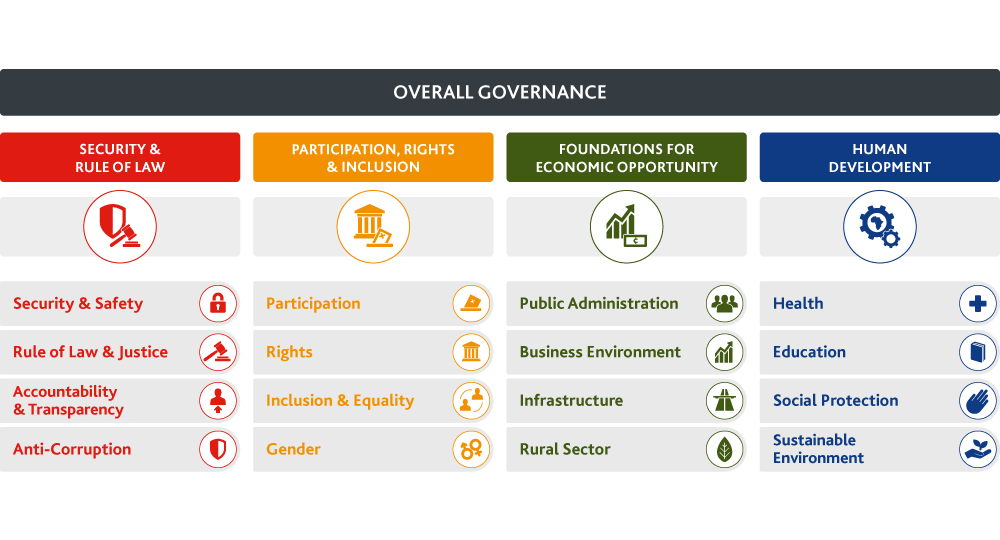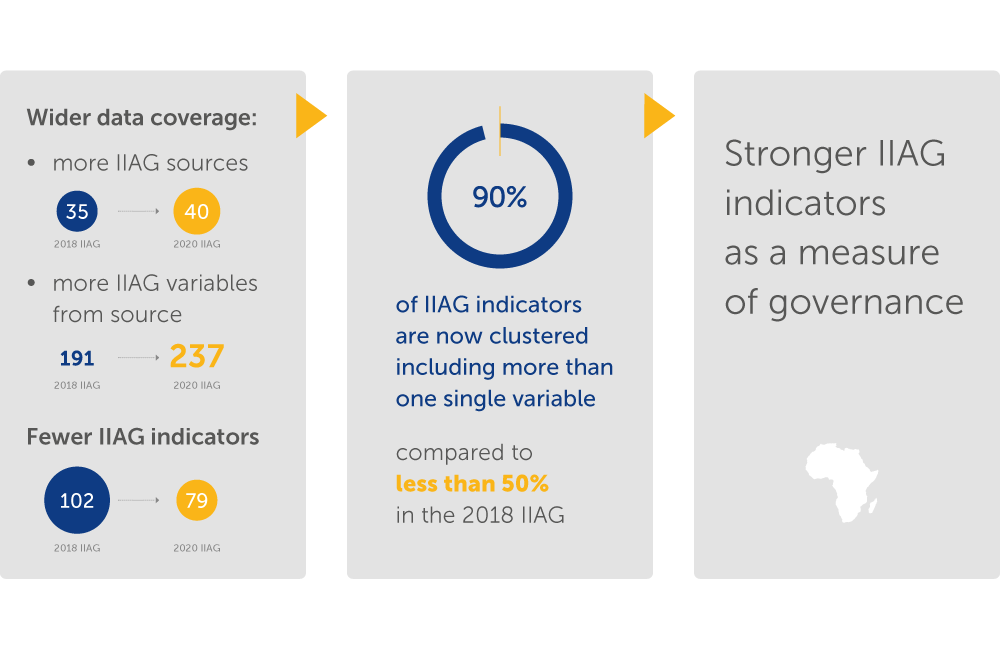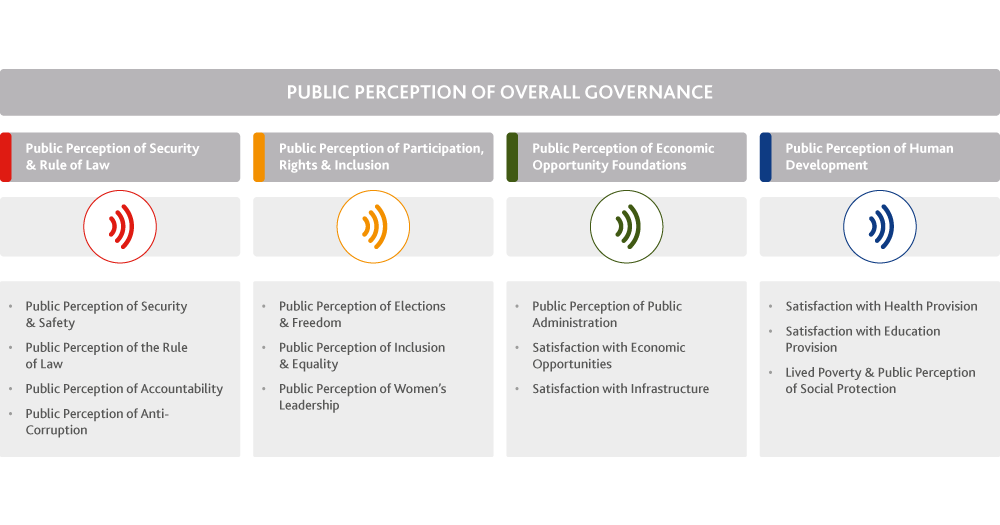The IIAG’s in-depth review: a new framework and three new main features
03 November, 2020
The Ibrahim Index of African Governance was launched in 2007 as a quantifiable tool to accurately measure and monitor governance performance in African countries. As described by Mo Ibrahim in his blog last week, the Index has undergone an in-depth review since our last iteration in 2018.
The aim of the review was to reflect the evolution of both the data and governance landscapes since the first iteration of the IIAG. Although there have been updates to variables and data sources since 2007, this is the first review of this depth, providing a completely re-worked framework at both conceptual and methodological levels.
There have been three key phases to the review over the past two years: an appraisal of the most relevant and recent literature and data sources on Africa and governance, extensive consultations with Foundation Board members, the IIAG Advisory Council, experts and practitioners, and consultations with each of the IIAG data sources. The most significant outcome of the review was a new IIAG framework, and three new main features.

2020 IIAG framework
Additional governance dimensions
MIF defines public governance as the ‘basket’ of public goods and services that any 21st century citizen is entitled to receive from their government, and that any 21st century government is expected to deliver to its citizens. While this definition has remained unchanged over time, in the last decade the governance landscape and the expectations of 21st century citizens of their governments have expanded to encompass new areas and new demands.
As a result of this, while the first iterations of the IIAG were mainly focused on traditional public services, such as security or education, the 2020 IIAG now encompasses new areas such as environment, digital rights, healthcare affordability, or inequality measures in social protection.
This is reflected in the inclusion in the IIAG framework of three new sub-categories, assessing Anti-Corruption, Inclusion & Equality and Sustainable Environment:

Thanks to more data, 90% of IIAG indicators are now clustered
Meanwhile, relevant data on Africa have slowly become more robust and available from being concerningly scarce some ten years ago, thanks to shared efforts and strong advocacy and resulting in a consequent strengthening of the IIAG.
The 2020 IIAG includes more sources and more variables from source, however the number of indicators forming the IIAG framework are fewer. 90% of the 2020 IIAG indicators are now clustered, that is based on more than one single source or variable. This minimises both the ‘single source/variable bias’ as well as the margin of error, strengthening the IIAG indicators as a measure of governance.

It is worth noting that the methodology used to calculate IIAG scores, initially built with the Kennedy School of Governance at Harvard University, has remained unchanged. This has been thoroughly reviewed in search of better ways to calculate the IIAG the current methodology as the best possible to calculate a composite index like the IIAG.
Africa’s citizens’ voices are highlighted more prominently
Our definition of governance highlights the key role of citizens as the end recipients of public leadership and governance. As such, our governance assessment does not rely solely on official and expert assessment data, and we have been including Afrobarometer public perception data through several IIAG iterations.
A key feature of the new framework is to give even more prominence to Africa’s citizens’ perceptions of various governance dimensions: these will be highlighted in the new IIAG section Citizens’ Voices, providing a comprehensive ‘reality check’ to complement the IIAG results.

Data gaps: still a lot to be done
Data gaps, meaning the lack of indicators measuring certain governance topics, remain a key challenge within Africa. The background research and analysis carried out by the Foundation for the IIAG in-depth review led to a clear overview of existing data gaps, and confirmed the continued need to advocate on improving data availability and coverage in key governance areas.
Among these areas are:
- climate change mitigation and adaptation policies
- hospital bed and medical doctor density
- education completion
- continental integration
- access to energy
- organised crime
- criminal events
- inequality and poverty.
The Foundation does, and will continue to, support large-scale African data collection initiatives aimed at filling data gaps for key themes of governance, such as Afrobarometer (Afrobarometer Surveys), Global Integrity (Africa Integrity Indicators), V-Dem Institute (Varieties of Democracy Project), as well as the World Justice Project (WJP Rule of Law Index).
The Foundation will also remain a strong advocate, as it has been since its establishment, for better civil registration and vital statistics as the basis for effective and inclusive public policy and public service delivery, from education, to health, housing, employment, justice, security or access to elections.
The new IIAG dataset, the online and Excel data portals and the accompanying analytical report will be launched on 16 November, and will be freely available for access on our website. For the next two years, we will continue working on unpacking the findings of the IIAG across the full set of categories and sub-categories, as well as at country, regional and group levels.


